Categories:
- ['Financial Services']
Status:
Start Date:
Estimated Cost:
Increasing Access to Financial Services
Access to financial services is a challenge for rural families.
More than 100 million people around the world are members of community-led savings groups. Many rural populations have no access to financial institutions such as banks or savings and loans and even if they did have access, they may be unable to take advantage of those services. Savings groups create a financial safety net for their members and aspire to lift their low-income or disadvantaged families out of poverty by providing access to financial services including savings, loans, investment, and insurance. It is a well-established, worldwide program with many success stories such as those of women entrepreneurs whose lives have been transformed by getting access to micro-loans to start a small business. Members use the loans to buy seeds for crops, acquire cows to sell milk, open small shops, or set up other revenue-generating activities.
These community-led groups, typically 20 to 30 people, offer a secure place to save money, ways to borrow via micro-loans, a return on investment from loan fees, and insurance funds in case of emergencies (e.g., death or illness of a family member). They are typically composed of members who already know one another, have an established level of trust, and are accountable to one another. During regular meetings, contribute to the insurance fund, purchase “shares” for investment (which are then used as loan funds), repay or takeout loans, and record all proceedings.
The savings groups are self-governing. They elect management committees and adopt a constitution that stipulates insurance fund contributions, share prices, loan interest rates, and fines for things such as late loan repayment, missed attendance, or other infractions. The members share in the profits of the group derived from loan interest payments at the annual share-out meeting where savings and profits are divided according to members share purchases.
The groups are commonly unbanked.The funds records and constitution are often stored in an iron box with multiple locks so no one person has the ability to open it.
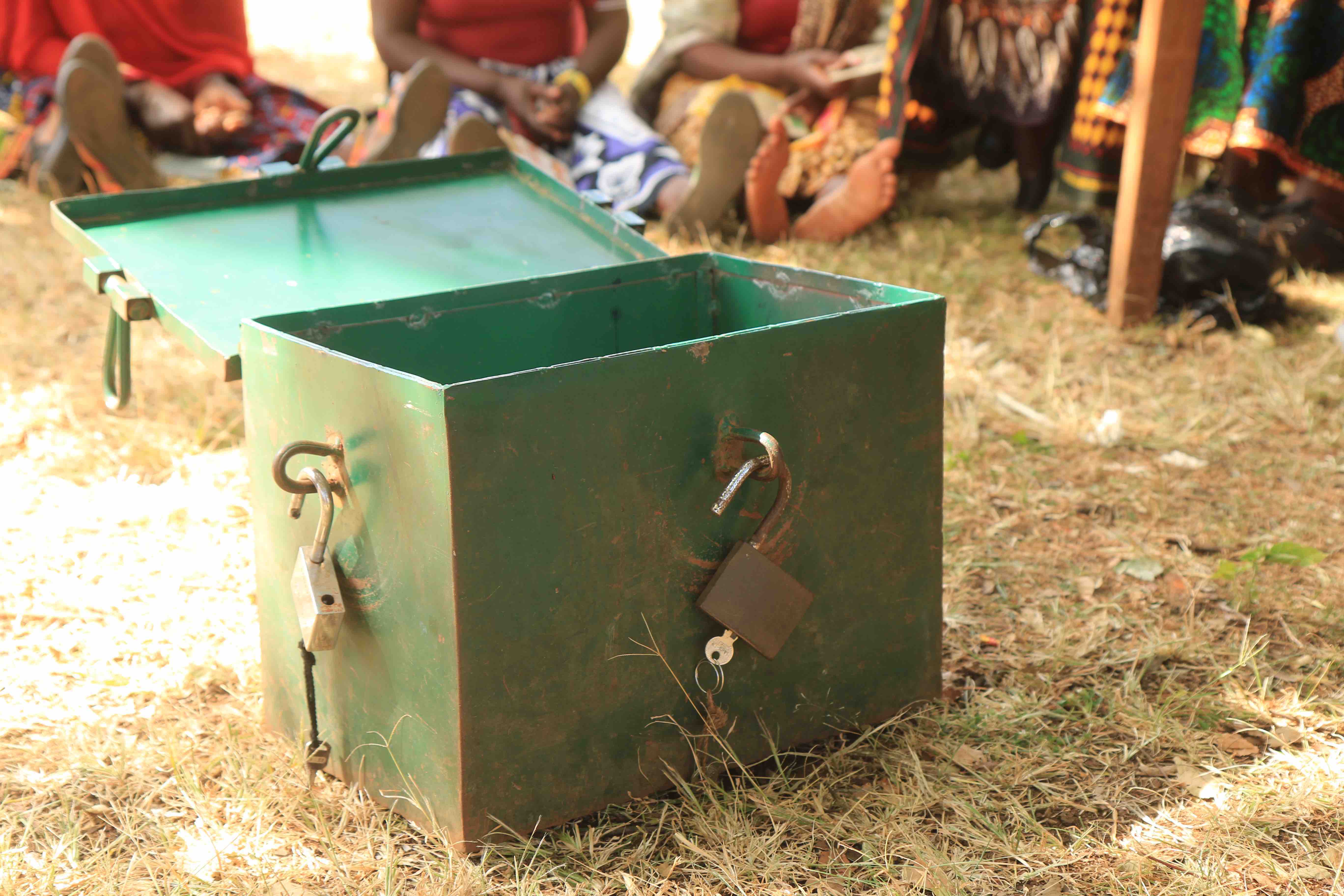
This fund supplies the cash for the micro-loans.
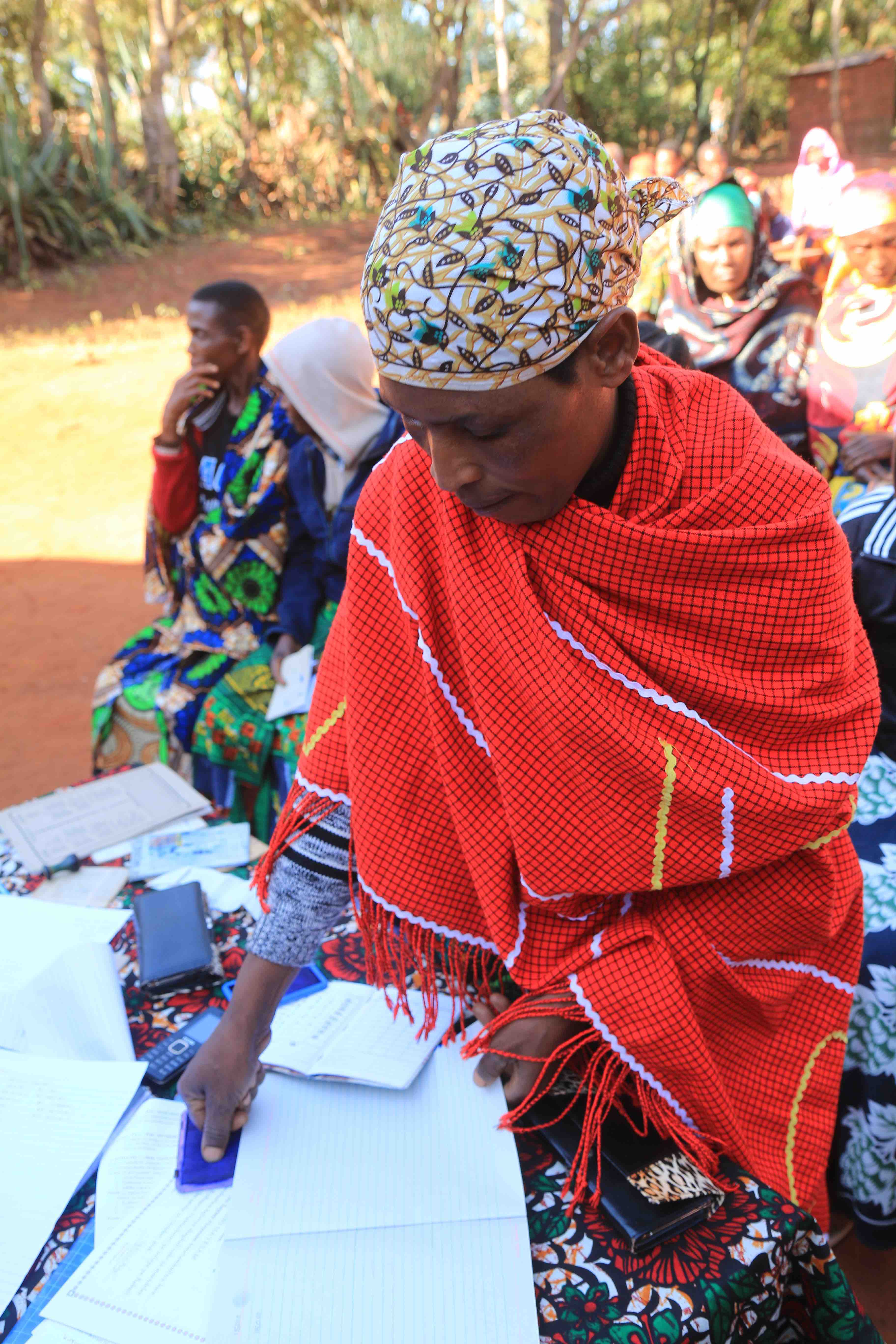
There are a number of established savings groups in Ayalagaya and there are local success stories. Unfortunately, the pool of money available for loans in most groups is limited, due to the small savings of its members. In Ayalagaya, savings vary from USD 0.50 (Tsh 1150) to USD 5.00 (Tsh 11,500). This dramatically diminishes the positive effects of savings groups as loans tend to be small (USD 2.00 or Tsh 4,600 to USD 50.00 or Tsh 115,000) and not all members will have access to loans at the same time which is commonly required for seasonal planting or school fees. Furthermore, there is little assistance available to form new savings groups except by word of mouth. While the government provides loans to established savings groups, and even training to those approved for loans, in practice these are rare and fall far short of the need.
Karimu plans to address this challenge through its Financial Services Program which will:
-
Create and train new and existing savings groups.
-
Establish a savings group federation to provide funds across member savings groups.
-
Provide seed money to the federation from which savings groups can take out larger loans which, in turn, will increase the loan funds available to their members. Karimu introduced financial assistance to individual savings groups in 2021 as a bridge between graduation from the training and availability of loans from a fully operational federation.
This project focuses on the 1st item. It encompasses:
-
Encouraging the creation of new savings groups (particularly for young adults who suffer from the lack of jobs in Eastern Africa)
-
Training new and existing savings groups in best practices based on guidance from a worldwide Tanzanian expert. Training includes not only learning the basic records keeping practices, but also includes training in the value of saving, borrowing wisely, meeting facilitation, and budgeting.
-
Developing local community-based trainers to sustain the ability to establish new savings groups by the end of the project.
December 2021 Update: From program inception through year end 2021, Karimu has trained or is training 11 groups comprising 255 members in Ayalagaya. Prior to training, existing savings groups scored an average of 48% on the Village Savings and Loan Association evaluation tool. The tool is a composite measure of operational transparency, record keeping accuracy, management committee effectiveness, and member participation. As of the end of 2021 we are seeing an average score of 85.5%! Members are saving an average of $121 each annually and our groups are seeing an average return on savings of 19.7%. Benchmarking with all of Tanzania (as reported through the SAVIX Information System) both our savings per member and return on savings are above average.
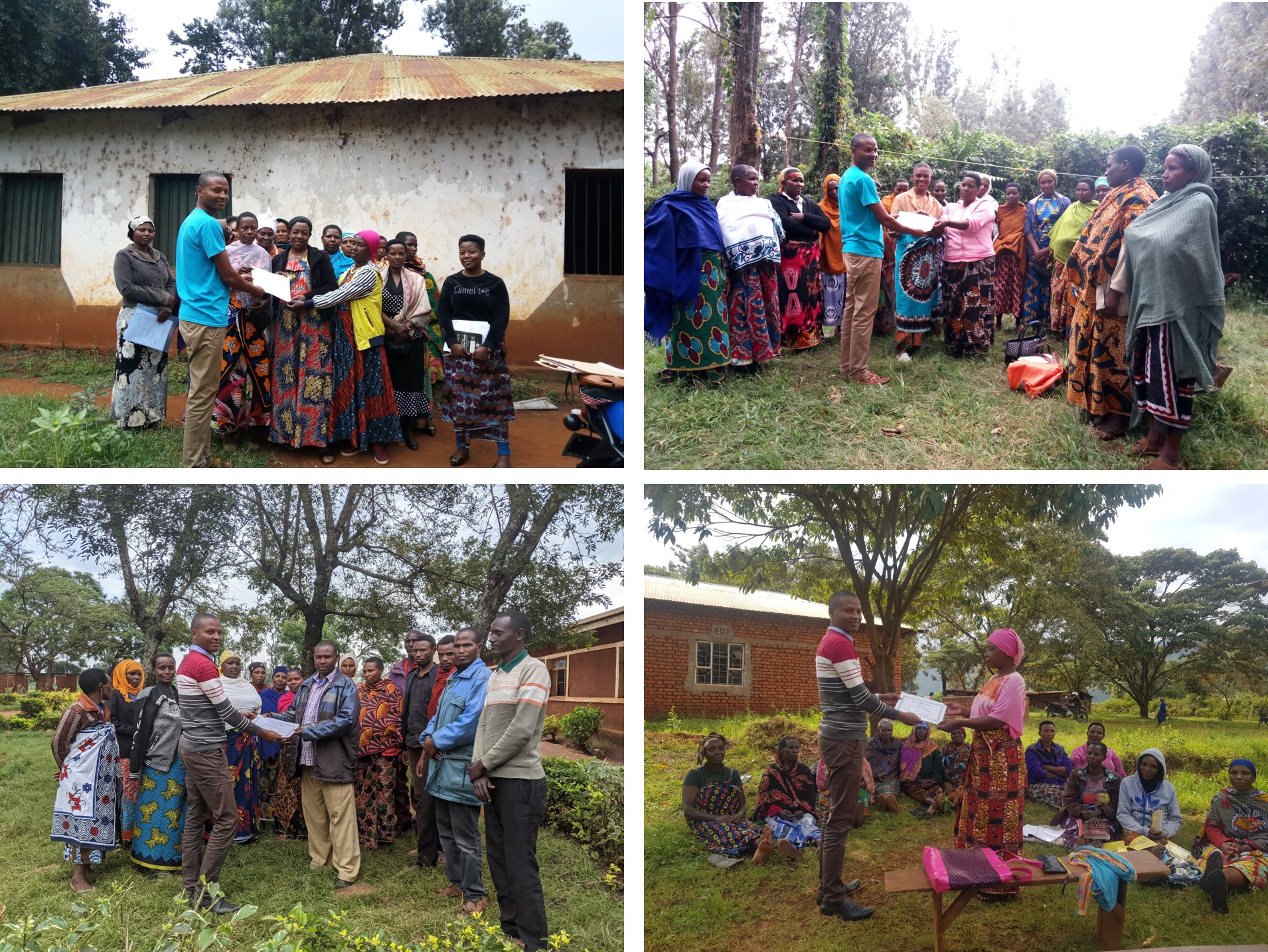
caption
Feedback from graduating groups tell us that
- Member participation is improving
- Members are more open and honest with their opinions
- Groups reflected on what went well and poorly and updated their constitutions accordingly
- Some groups increased their share price indicating they have more money to save
- Leadership has improved
- Bookkeeping has improved
- Members are setting specific savings goals
- Share out goes quickly, the profits are clear, and members trust the records
July 2022 Update: From program inception to present Karimu has graduated 8 groups with another 6 in training comprising 385 members. Average assessment scores continue to be above 80% across all groups and 86.2% for graduating groups. Members are saving an average of $169 annually and seeing an average return on savings of 18.8%. Benchmarking against all of Tanzania continues to be above average. We estimate that we are touching over 15% of households.
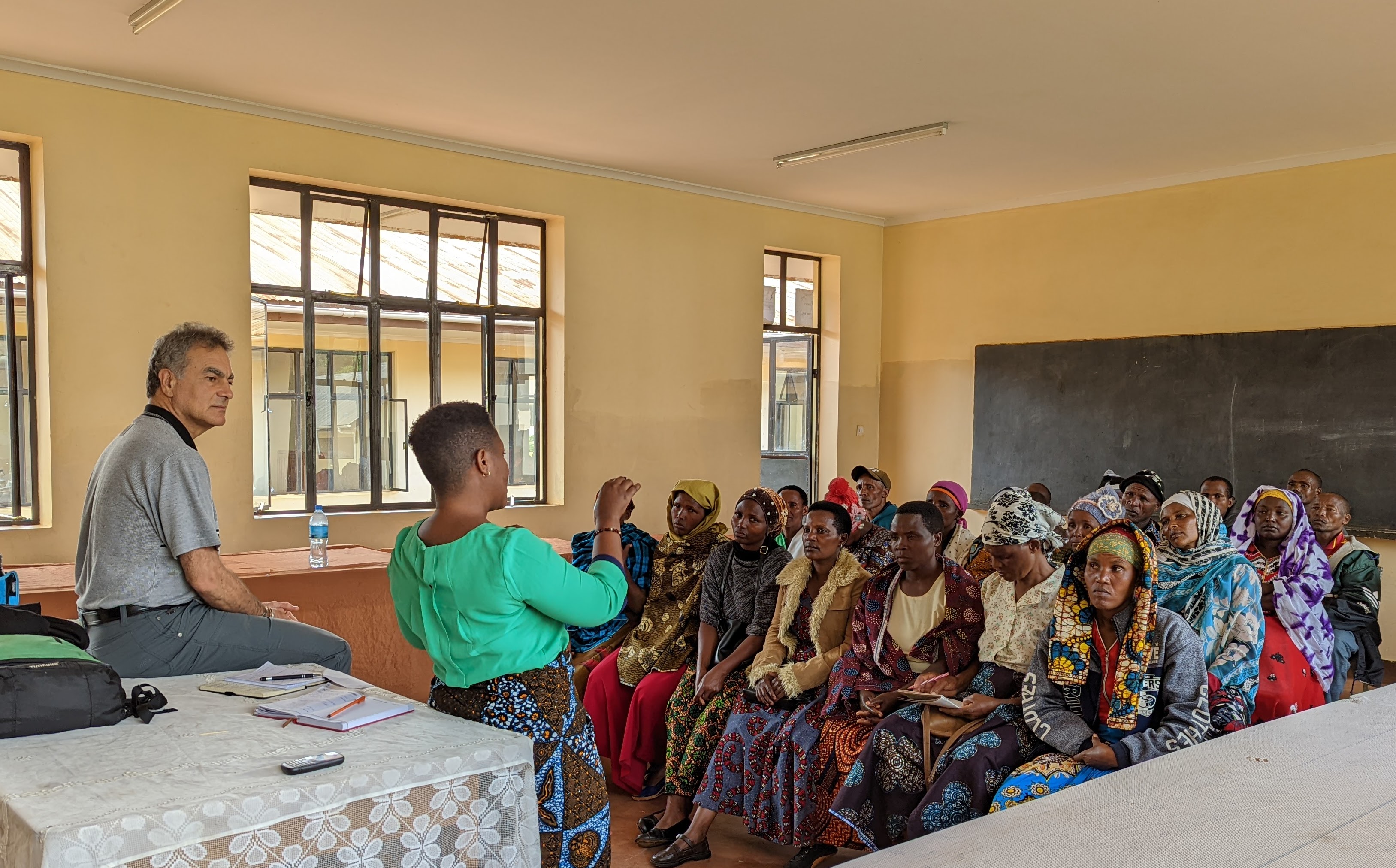
caption
Recent feedback from the 5 of the groups ending their cycle includes:
- They ended the cycle well
- They had no late loan repayments
- They reported good behavior of members
- They kept all their members into the new cycle
- One person was able to buy a sewing machine with their loan and another opened a shop
- People are thinking more about what they need a loan for and how much they need rather than taking it just because it is available
- Most members are now coming to the meetings. They see the importance of attending and are charged a fine if not attending
- Passbook/ledger processes are really helpful. Passbooks make it easy to see their maximum loan amount is (3X shares)
- Some mature groups are starting to think about group projects
December 2022 update: We have now graduated a total of 9 groups with 9 more in training. We estimate that we have 468 members touching ~421 households representing 19.5% of Ayalagaya households. We recently reviewed the average savings per member and have seen a 60% increase in annual savings from 2020 to 2022! Since our meeting earlier in the year with the management committee members, they have already helped to form 3 more groups!
Recent feedback from the groups include:
- Continued improvement in member participation
- Members are more open and honest with their opinions
- Groups reflected on what went well or poorly and update their constitution accordingly
- Some groups increased of share price indicating improved income
- Group leadership had improved
- Bookkeeping is better and share out goes quickly with clear profit and trust in their records
- Members who were in the multiple groups are starting to drop and remain with 1 group indicating they are able to get sufficient loans through a single group.
December 2023 update: Karimu has now graduated 13 groups from the training program in Ayalagaya. We estimate that we have 485 group members touching an estimated 420 households representing 18% of the households. In aggregate, our groups are currently managing $110,128 in savings and loan funds with a 22.9% return on savings. Program inception to date we see an average annual savings increase of 73%!
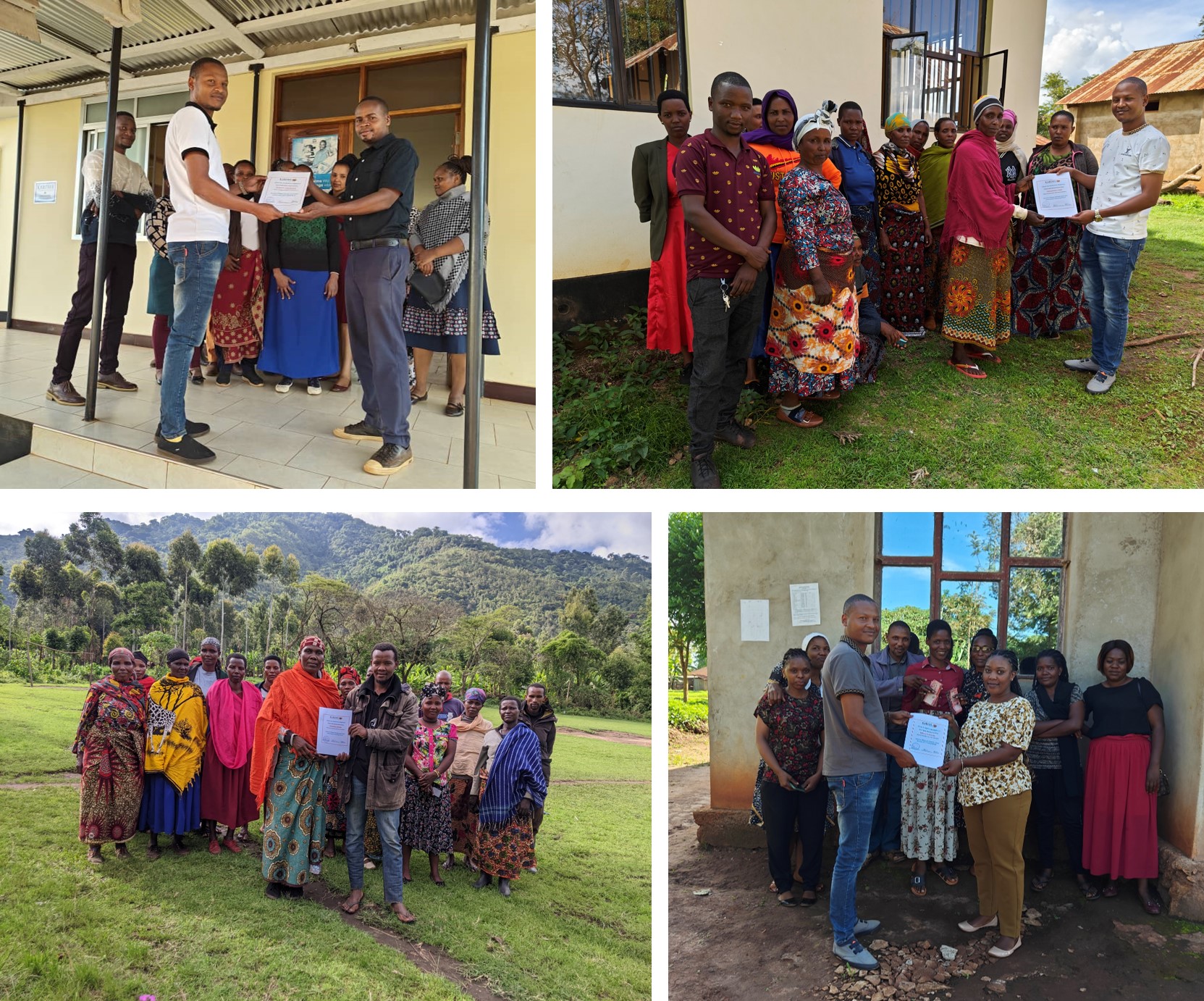
caption
At the end of training each group is asked to reflect on what they learned or achieved and what changes they would like to make. This is feedback we heard this year:
- Some groups are increasing their share price. This is an indication of the increasing income of members as the share price is set according to the lowest amount that members can afford to save every week.
- Other groups are increasing their social fund contribution. The social fund is typically used as a gift to members having a hard time e.g. family illness or death, but may also be used for celebrations. Its rules for use are set by the group members of each group.
- Groups are looking forward to access to loans from Karimu to enable them to expand their businesses or make home improvements.
- Groups are looking forward to joining the federation. This is a change as initially groups were very skeptical of saving together with groups from other villages whom they did not know. We are seeing how the training creates more confidence in the savings and loan processes shared across all groups and the federation.
- Smaller groups are accepting new members (up to the limit of 30) but are also adding members cautiously to make sure they do not destabilize the group.
- Groups have discussed their constitution and changes that they want to make e.g. appropriate uses of their social fund. This is important to keep the constitution a living document that is the reference for policies and practices.
Update June 2024: We graduated another 4 groups in Ayalagaya bringing the total to 17. Three groups are in training. We have 531 members across all graduates or in training groups representing 21% of households. 83% of savings group members are women and 19% are young adults.
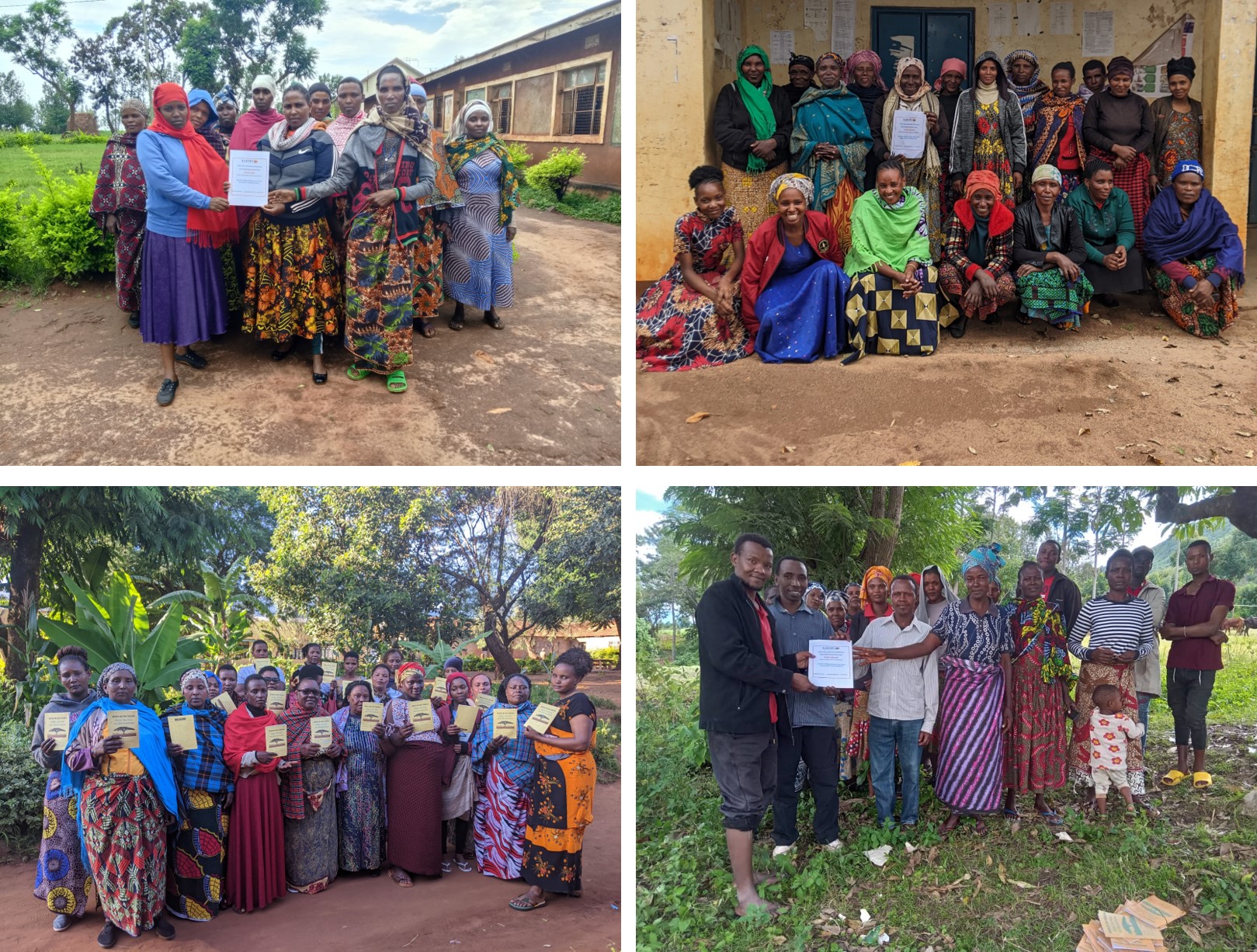
caption
We have begun training our community based trainers with participants from all three villages with participation from 10 different groups. They will take over training new groups as soon as they are qualified leaving the community self-sufficient to extend the network of support and knowledge.
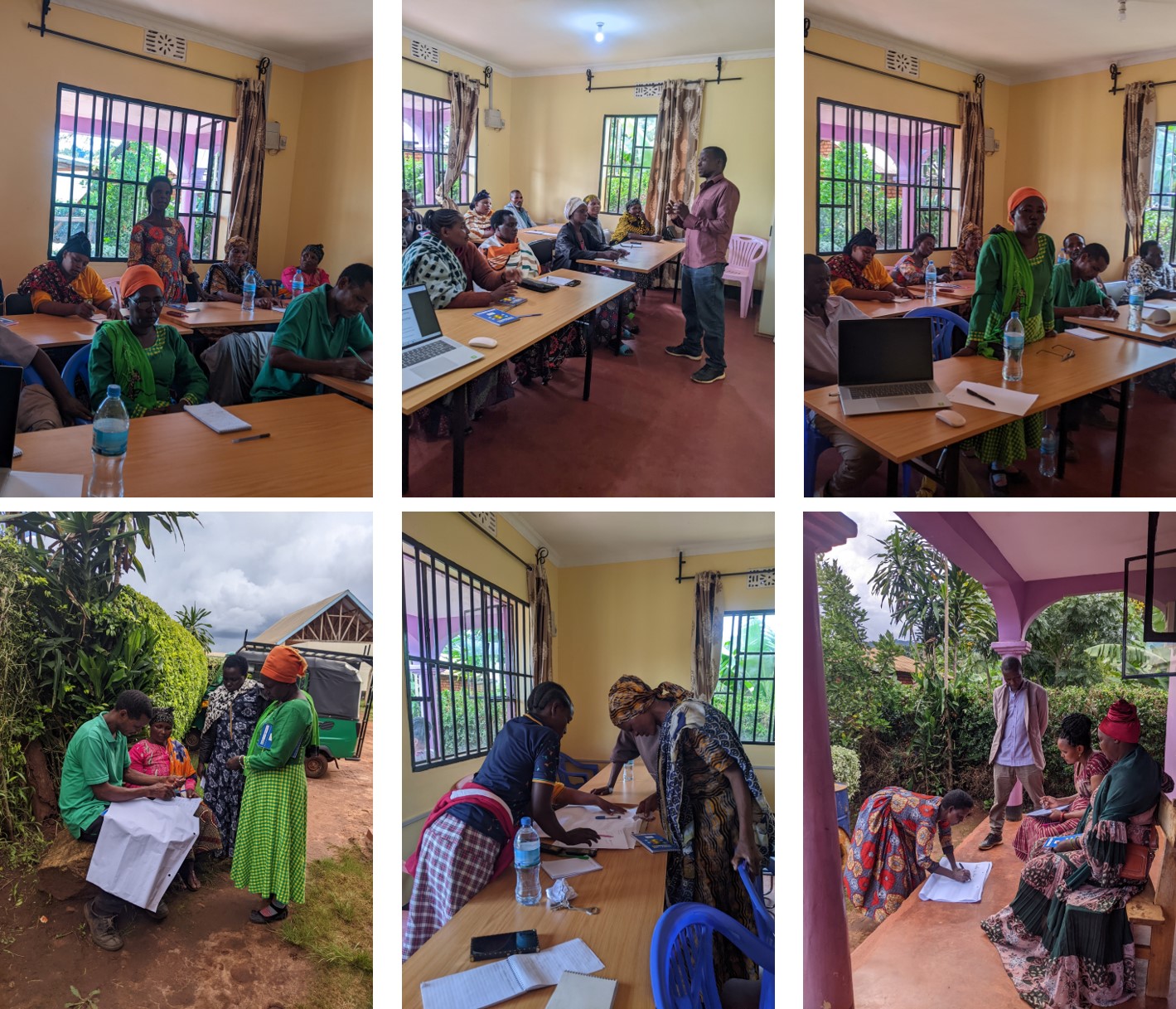
caption
Update June 2025: Since the last update we have graduated an additional three savings groups bringing the total up to 20 graduated groups within the ward. Notably one of these groups is composed entirely of young adults. This is quite an accomplishment as young adults have many challenges which make maintaining stable savings groups harder: they typically don’t own their own land, job opportunities are few, many have to move for work, and there has been the belief that savings groups are for older women.
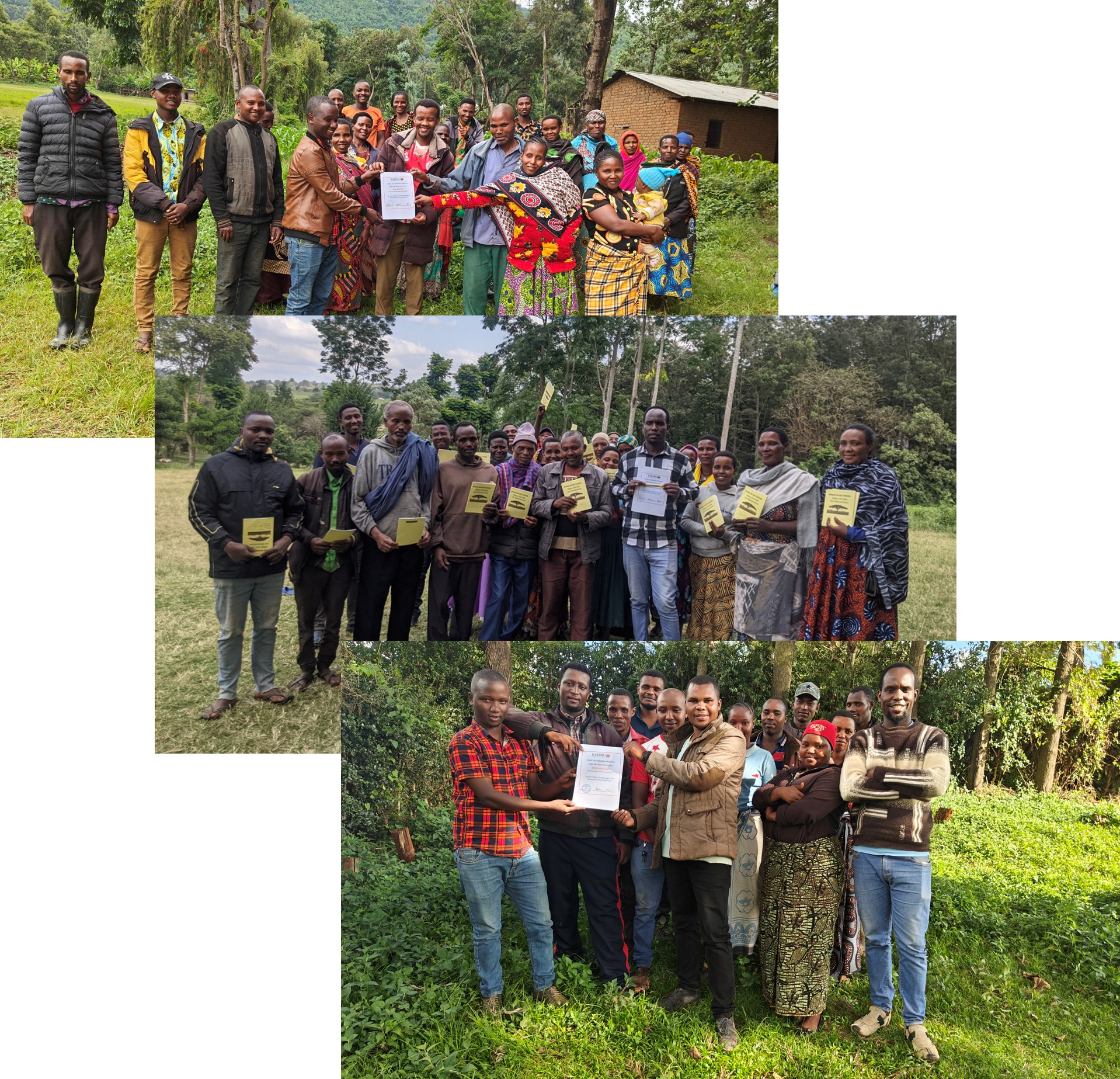
caption
We have three groups in training now, one by Karimu staff and the other two by community-based trainers that Karimu is certifying.
We completed training 10 community-based trainers in June 2025. They represent all three villages within the ward and are members of 10 different savings groups. We expect new groups in Ayalagaya to be trained by these CBTs.
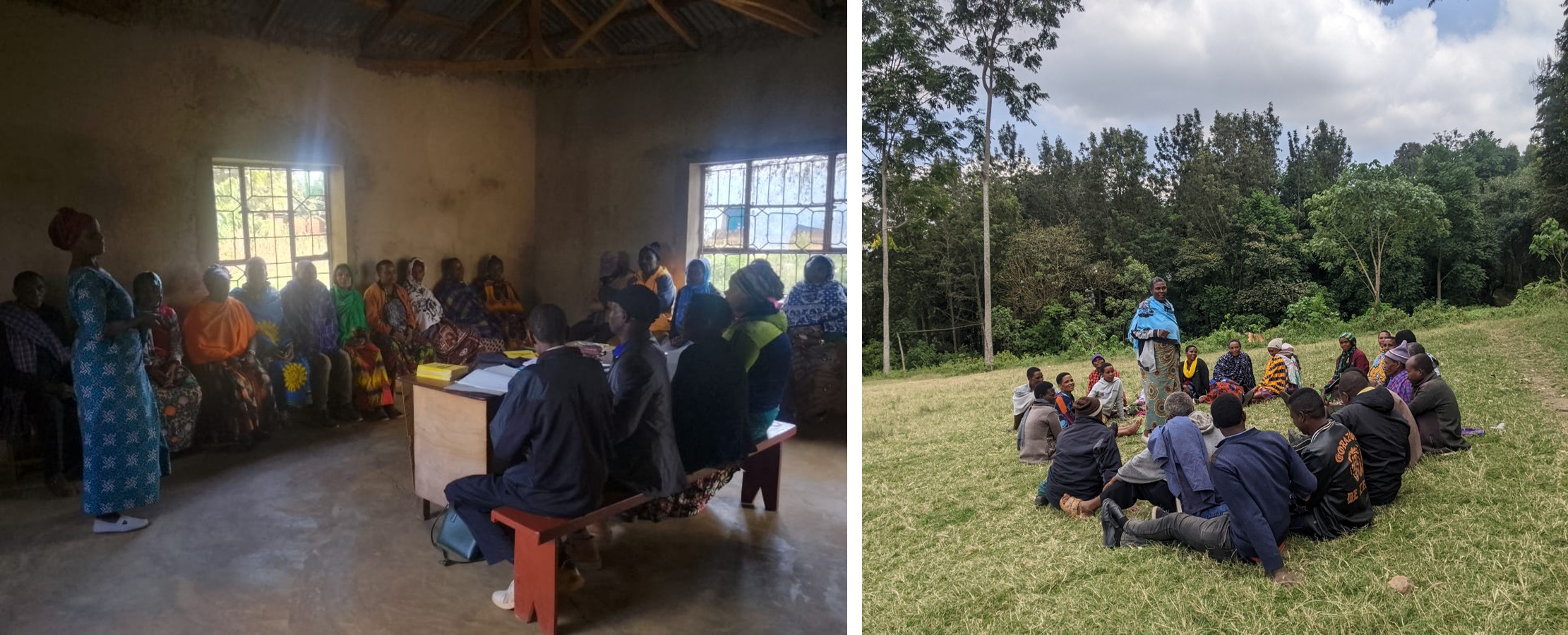
caption
Our key goals for this project are
- To graduate enough groups that we have touched 25% of households in Ayalagaya. To date we estimate that 22.4% of households participate in the training program and 19.4% have household members who have graduated from the program.
- To increase young adult participation to 25%. We are at 19% young adult participation.
- To exceed the return on savings rate for savings groups across Tanzania as a whole. We use the reporting from the SAVIX MIS system. At month end June 2025 the Tanzanian ROS is 17.5% while our groups in Ayalagaya average 34.2%.
- To have a self-sustaining means of training groups that is not dependent on Karimu going forward. We are just completing the training of our CBTs.
Expected benefits:
-
Increase the number of households having access to financial services
-
Increase the understanding of how to save and borrow money wisely
-
Increase the financial safety net available to households during crisis
-
Increase access to loans for small business and community projects
-
Develop leadership skills to empower community members
-
Increase of overall income of local families
Cost:
- Karimu: $16246
- Community: $424
Learn more about Karimu Financial Services Program .


